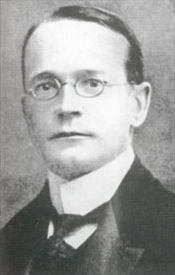A Quote by Nat Hentoff
I found out - the paper used to go to bed on Tues - on Monday. I found out that on Monday nights, the editors would cut out - literally cut out passages, sometimes whole paragraphs, of some of the writers that might possibly offend blacks, lesbians, gays, radicals. And I wrote a couple of columns about that. And they're - of course, they were annoyed that I had written about it, but, I mean, it - another example - and [my wife Margot] always also conjured that.
Related Quotes
IN MY LIFELONG STUDY OF HUMAN BEINGS, I HAVE FOUND that no matter how hard they might try, they have found no way yet to prevent the arrival of Monday morning. And they do try, of course, but Monday always comes, and all the drones have to scuttle back to their dreary workaday lives of meaningless toil and suffering.
My wife is my first reader, my first line of defence I suppose. So she says, "Oh well, oh yes, it's all true." At the same time, I could have written much more about us, but I didn't want to go any further. I did cut things out. There are certain things that I wrote about her that are so gushing with praise and admiration that when I looked at those passages I realised they would be ridiculous to anybody else.
To me, writing is a very physical process. I lay out the entire book with the two narratives side by side on my bedroom floor, and just get down on my hands and knees and start looking at it in that physical space. "Does this really follow from this? Should this be here or elsewhere?" I will literally cut the paper into paragraphs. I'll cut it into segments and move the segments around from one narrative to the other until I feel that I've found the natural structure.
Now, tell me how you're going to teach the history of Jefferson, and cut out all those quotes and cut out all these facts, and cut out the key line of the Declaration of Independence: We are endowed by our Creator. I mean you have to have a conscious deliberate censorship of America, which is what the left and the courts and the classrooms has had for 40 years.
Basically, I've reached the point where I've lost any direct relationship to any of the editors I used to have. I suspect I'll have to pay to publish this myself, and I think a lot about about putting out fifty copies. I used to think about hogwash like my legacy and silly things like that. But I feel like if I never have another book out, I've done okay, I've had like twelve or thirteen little books, and I won't be upset about this on my death bed.
I found that pedals were too much to fool around with. You'd be halfway through a solo, and the batteries would go dead and conk out. And if you tread on the lead going to the pedal, something would always go wrong. Or some crazy kid would pull the lead out just at the moment when you're about to do your big number on it.
Usually I work out the plot before I start. This time I thought: Writers always talk about not knowing where a book is going - -I want to experience that, too. What I found out is that it's very interesting, but it takes much longer because you have so many false starts. You take wrong turns and you have to go back and start the whole chapter, or the whole section, from scratch.
I took a sheet of paper, divided it into debt and credit columns on the arguments for and against God and immortality. On Christmas Eve I wrote 'bankrupt' at the foot. And it was on Christmas morning 1895, after I had celebrated three Masses, while the bells of the parish church were ringing out the Christmas message of peace, that, with great pain, I found myself far out from the familiar land--homeless, aimlessly drifting. But the bells were right after all; from that hour on I have been wholly free from the nightmare of doubt that had lain on me for ten years.
I went out to testify in front of the Ways and Means Committee out in Congress on open free trade to China. Now, this would affect literally every Minnesotan in some way or another, if not all Americans in some way or another....The local media sent no one out to cover my testimony....Well, then a couple weeks later, I go out to do The Young and the Restless, the TV soap opera, and everybody sends crews. We had to move them into a room in three different sections or three shifts of them because there was so much media covering that.






































